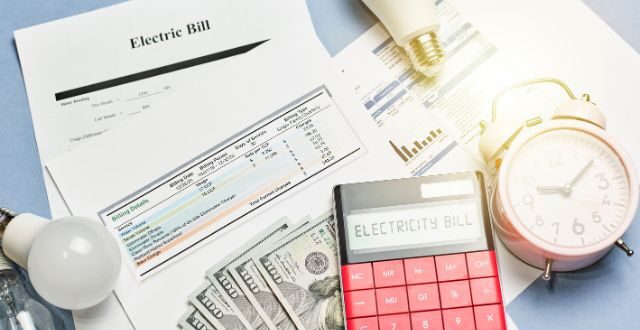In today’s world, businesses are constantly striving to reduce their operating costs while maintaining productivity levels. One of the largest expenses that businesses face is energy bills. From lighting and heating to computers and appliances, energy consumption is a vital part of running a successful business. However, with the right strategies in place, business owners can reduce their energy bills without compromising their daily operations.
In this blog post, we will explore 8 simple ways to slash your business energy bills. You can also check out Business Energy Comparison to compare energy prices and find the best deals for your business.
Switch to Energy-Efficient Lighting
Traditional incandescent bulbs use a significant amount of energy and have a shorter lifespan compared to energy-efficient options such as LED or CFL bulbs. By switching to these alternatives, you can reduce your energy consumption and save money on your electricity bills. Energy-efficient bulbs also produce less heat, making them a safer and more eco-friendly option for your workplace.
In addition, some energy-efficient bulbs come with advanced features such as dimming capabilities, which can further help you save energy and adjust lighting levels to your business needs. Making this small change can have a big impact on your energy bills and the environment.
Install Programmable Thermostats for AC
Installing programmable thermostats for your air conditioning system is a simple and cost-effective way to reduce your energy bills. These thermostats allow you to set specific temperature levels for each day and time of the week, based on your business hours and occupancy. With the ability to program your HVAC system to run only when necessary, you can avoid wasting energy and money on cooling an empty space.
Additionally, programmable thermostats can be remotely controlled through a smartphone app, making it easy to adjust settings on the go. By taking this step, you can ensure that your business remains comfortable for employees and customers while also saving money on your energy bills.
Use Power Strips and Surge Protectors
Using power strips and surge protectors is one of the easiest and most effective ways to reduce energy consumption in your business. Power strips are designed to allow multiple devices to be plugged into a single outlet, while surge protectors protect your electronics from power spikes. By using these devices, you can easily turn off power to multiple electronics at once, reducing standby power consumption.
In addition, surge protectors can prevent damage to your electronics, saving you money on repairs or replacements. Be sure to invest in high-quality power strips and surge protectors that meet safety standards to ensure reliable protection and energy savings. By implementing this simple solution, you can make a significant impact on your business’s energy bills.
Conduct Energy Audits Regularly
By regularly assessing your energy usage, you can identify areas where energy is being wasted and take steps to address those inefficiencies. Energy audits can also help you identify opportunities for energy-saving upgrades or investments, such as replacing outdated equipment with newer, more energy-efficient models.
Additionally, regular audits can help you track the impact of any energy-saving initiatives you implement, allowing you to see the results of your efforts and make further adjustments as needed. Overall, making energy audits a regular part of your energy management strategy can lead to significant cost savings and a more sustainable business.
Seal Air Leaks and Drafts
Sealing air leaks and drafts is a highly effective way to reduce energy bills and improve the comfort of your business. Air leaks and drafts can occur around windows, doors, vents, and electrical outlets and can significantly increase heating and cooling costs. Sealing these gaps and cracks can prevent air from escaping and entering your building, reducing the load on your HVAC system and lowering energy consumption.
The most common materials used for sealing air leaks and drafts are caulk, weatherstripping, and foam sealant. It is important to inspect your building regularly and seal any air leaks as soon as they are detected to maximize energy savings and improve indoor air quality. By taking this simple step, your business can reduce energy loss and cut down on unnecessary expenses, helping you to save money and increase energy efficiency.
Choose Energy Star Certified Appliances
Energy Star is a government-backed program that helps businesses and individuals save money and protect the environment by promoting energy-efficient products. Energy Star-certified appliances, such as refrigerators, air conditioners, and computer monitors, use less energy than standard models, saving you money on your utility bills.
In fact, Energy Star estimates that businesses can save up to 30% on energy costs by using their certified products. So, when it’s time to replace your old appliances, be sure to choose Energy Star-certified models to save money and reduce your business’s carbon footprint.
Encourage Employees to Conserve Energy
In order to reduce your business energy bills, one simple and effective way is to encourage your employees to conserve energy. This can be achieved by educating them on the importance of energy conservation and providing them with tips on how to do so. Encourage them to turn off lights and electronics when not in use, unplug chargers when not in use, and adjust the thermostat to a reasonable temperature.
Additionally, consider implementing incentive programs to reward employees who consistently conserve energy. By making energy conservation a priority within your company culture, you can not only lower your energy bills but also contribute to a more sustainable future.
Consider Renewable Energy Options
Renewable energy sources such as solar, wind, and hydropower can provide your business with clean and sustainable energy while also reducing your reliance on traditional energy sources. By investing in renewable energy solutions, you can not only save money on your energy bills but also contribute to the fight against climate change. While the initial investment may be higher than traditional energy sources, the long-term benefits of renewable energy can greatly outweigh the costs.
Additionally, many governments offer incentives and tax breaks for businesses that invest in renewable energy, making it an even more attractive option. Overall, considering renewable energy options is a smart and forward-thinking decision for any business looking to reduce their energy costs and carbon footprint.
Conclusion
It is essential for businesses to take a proactive approach toward reducing energy consumption and bills. By implementing these 8 simple techniques, businesses can significantly cut down on energy expenses while also contributing towards a greener environment. The benefits of energy efficiency extend far beyond cost savings, including increased productivity, improved brand image, and reduced carbon footprint. Therefore, it is imperative for businesses to prioritize energy-saving practices and make it a part of their everyday operations.
 khamush.com Lifestyle | Motivation | Poems
khamush.com Lifestyle | Motivation | Poems



